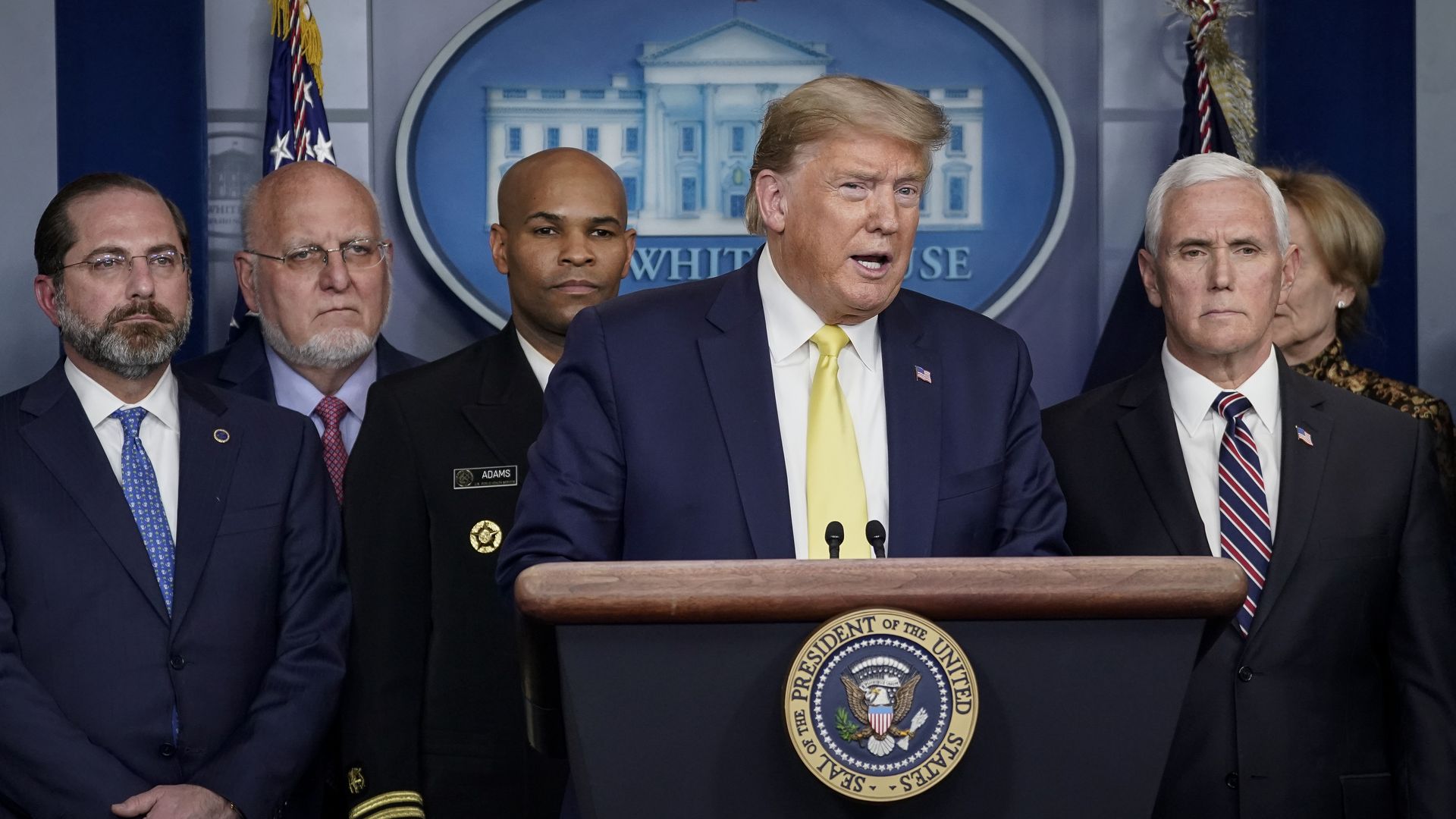Sep 15, 2020 - Health
Reports suggest politicization of Trump coronavirus response
Add Axios as your preferred source to
see more of our stories on Google.

President Trump speaks at a press conference, surrounded by administration officials. Photo: Drew Angerer/Getty Images
